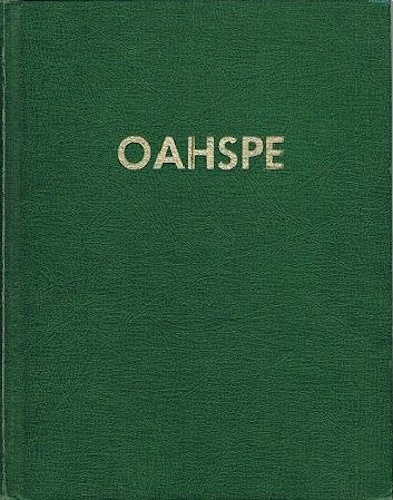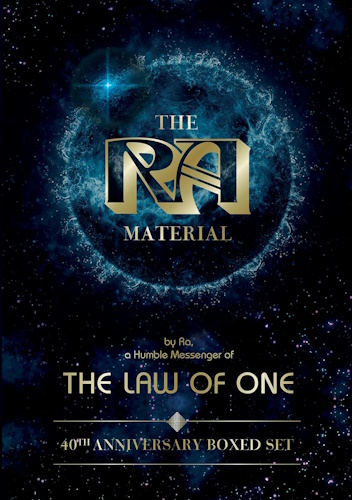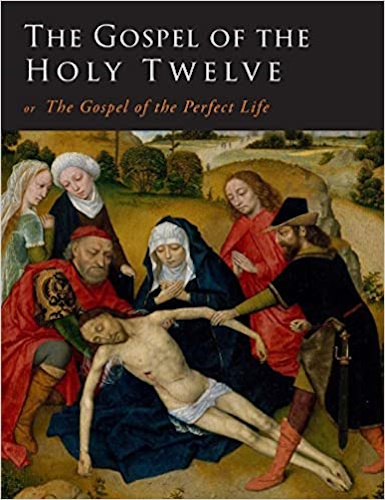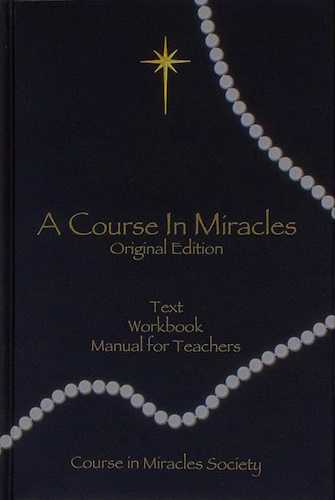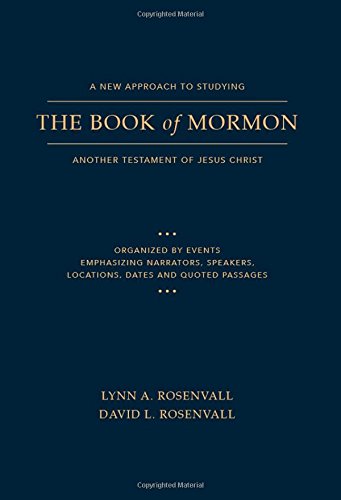
![]()
![]()
Book of Wars Against Jehovih
Chapter XXXIV
1. KAN Kwan again went forth to conquer and subdue, going to the southward, to Ho-tsze, a large city having five tributary cities, ruled over by Oo-long, a king with two hundred wives and thirty thousand soldiers, men and women, well disciplined.
2. Kwan's army was now seven thousand strong, but without discipline; and with no head save himself. And on his march through the country he compelled the farmers to embrace the Te-in religion, under penalty of death.
3. Now when he had come near Ho-tsze, he sent an order for the king to surrender, even after the manner as at the city he had already conquered.
4. Oo-long laughed when told of the kind of company that had come against him, and he sent only women soldiers, eight thousand, to give him battle. When the armies were near together, the Lords said to Kwan: Send thou a truce, and beseech thine enemy to surrender under penalty of death; for the angels of Te-in will deliver them into thy hand, and not one shall die.
5. A truce was sent, and lo and behold, the whole of Oo-long's army surrendered, and made oaths of allegiance to Kwan, and not one was slain. Oo-long, when informed of it, said: Now will I go with all my army and slay this ragged king and all his people,and also my eight thousand who have surrendered. So he marched to batle with twenty-two thousand soldiers. Kwan's army was scattered about the fields. Oo-long said to his captain: Go, thou, tell this foolish king to set his army in line of battle; I desire not to take advantage of a flock of sheep.
6. The captain started to go, but ere he reached the place, he fell down in a swoon, for the angels overpowered him. The king saw his captain fall, and he cried out to his army: It is enough! My army have never seen such fools, and know not how to battle with them. Come, I will lead!
7. At that, he rushed on, followed by his thousands. Instantly, Kwan's army set up their screams and howls, and ran forward in every direction, and lo and behold, Oo-long's army broke and fled, save one thousand two hundred who were captured, Oo-long amongst them; and they were instantly slain. But of Kwan's army only one man was killed.
8. The Lords sent messengers to Te-in in his heavenly place, informing him of Kwan's success. Te-in returned this commandment: In what has been done I am well pleased; but suffer not your mortal king, Kan Kwan, to win so easily hereafter; but let him have losses, that he may not forget me and my Lords and my hosts of angels. Place ye him in straits, and cause him to pray unto me; and his army shall pray also. And when they have thus sacrificed, deliver him and his army from their straits, and make him victorious for a season.
9. Kwan entered the city of Ho-tsze without further opposition, and possessed himself of it. At once he caused thirty thousand laborers to fall to work building a temple to Te-in. Another twenty thousand he caused to pull down houses and make other streets, more beautiful. In twenty-eight days the temple and the streets were completed; and on the twenty-ninth day the sacrifices commenced, and all the people were obliged to swear allegiance to Kwan and to Te-in, or be slain. And on the first day there were slain four thousand men and women (worshippers of different Gods, but for the main part the Great Spirit) who would not take the oath.
10. After that, none refused, and so Kwan gave the city a new name, Tue Shon; and he appointed So'wo'tse governor, and commanded the tributary cities to come under the yoke.
11. After that, Kan Kwan went forward again to conquer and subdue; and the Lords of heaven and their twelve millions of angels went with him and in advance of him, preparing the way. And the news of his success was spread abroad amongst mortals also, well exaggerated; so that the inhabitants of cities far and near feared him.
12. The Lords suffered Kwan to conquer and subdue yet three other large cities without loss to his army; and lo and behold, Kwan began to think it was himself that possessed the power, and not Te-in.
13. The next city, Che-gah, was a small one, of fifty thousand inhabitants. Kwan inquired not of Te-in (through the Lords) as to how to make the attack, but went on his own judgment.
p. 420
Now there ruled over the city a woman, Lon Gwie, a tyrant little loved, and she had but four thousand soldiers, and Kwan had seven thousand.
14. Kwan, arriving near, demanded the place; but the queen answered him not with words; but had her soldiers in ambush, and thus fell upon Kwan's army, and put one-half of them to death; and yet the queen suffered small loss. Kwan, not finding his Lords with him, fled, and his remaining army with him. But the Lords urged the queen to pursue him, and she again fell upon them and slew another half, and crippled hundreds more. But the queen suffered small loss.
15. The Lords then spoke to Kwan, where he had escaped, and said unto him: Because thou wert vain and rememberedst not me, who am thy heavenly ruler, Te-in, I have labored to show thee that of thyself thou art nothing. Then Kwan prayed to Te-in, saying: Most mighty ruler of heaven and earth, thou hast justly punished me. I pray thee now, with good repentence, in the bitterness of my shame. What shall I do, O Te-in? I am far from home, in a strange country, and my army is well-nigh destroyed. All nations are against me; a sheep is safer in a forest with wolves than I am in these regions.
16. The Lord said unto Kwan: Now that thou hast repented, behold, I, Te-in, will show thee my power. For thou shalt gather together the remnant of thy army and turn about and destroy the queen and her army, or put them to flight and possess the city.
17. Kwan, on the next morning, being inspired by his Lords, prepared for battle, though he had but seven hundred men. On the other hand the Lords and their angels appeared in the dreams and visions of the queen's army, saying to them: The queen is deceived and led away into a trap. Kwan will be joined in the morning by fifty thousand men. Prepare, therefore, to die to-morrow.
18. On the morrow, then, on the queen's side, the soldiers related their fearful dreams to one another; and hardly had they finished the matter when Kwan's army came upon them. And the angels, more than fifty thousand, took on sar'gis, seeming even like mortals. At sight of this, the queen's army were so frightened they could not flee, save a few, but nearly the whole army surrendered, throwing away their arms and lying down.
19. Kwan and his army fell upon them and slew them, more than four thousand, who were rendered powerless by the angel hosts with them. Kwan then went into the city, doing as previously in other cities, establishing himself and Te-in.
20. Such, then, was the manner of Te-in, the false, of establishing himself in Jaffeth. Hear ye now of Sudga, of Vind'yu, and her heavenly kingdom.
-
Urantia Book, 44:0.11 - The Celestial Artisans
Never in your long ascendancy will you lose the power to recognize your associates of former existences. Always, as you ascend inward in the scale of life, will you retain the ability to recognize and fraternize with the fellow beings of your previous and lower levels of experience. Each new translation or resurrection will add one more group of spirit beings to your vision range without in the least depriving you of the ability to recognize your friends and fellows of former estates.
-
Princess Bride 1987 Wallace Shawn (Vizzini) and Mandy Patinkin (Inigo Montoya)
Vizzini: HE DIDN'T FALL? INCONCEIVABLE.
Inigo Montoya: You keep using that word. I do not think it means what you think it means. -
Urantia Book, 117:4.14 - The Finite God
And here is mystery: The more closely man approaches God through love, the greater the reality -- actuality -- of that man. The more man withdraws from God, the more nearly he approaches nonreality -- cessation of existence. When man consecrates his will to the doing of the Father's will, when man gives God all that he has, then does God make that man more than he is.
-
Urantia Book, 167:7.4 - The Talk About Angels
"And do you not remember that I said to you once before that, if you had your spiritual eyes anointed, you would then see the heavens opened and behold the angels of God ascending and descending? It is by the ministry of the angels that one world may be kept in touch with other worlds, for have I not repeatedly told you that I have other sheep not of this fold?"
-
Urantia Book, Foreword - 0:12.12 - The Trinities
But we know that there dwells within the human mind a fragment of God, and that there sojourns with the human soul the Spirit of Truth; and we further know that these spirit forces conspire to enable material man to grasp the reality of spiritual values and to comprehend the philosophy of universe meanings. But even more certainly we know that these spirits of the Divine Presence are able to assist man in the spiritual appropriation of all truth contributory to the enhancement of the ever-progressing reality of personal religious experience—God-consciousness.
-
Urantia Book, 1:4.3 - The Mystery Of God
When you are through down here, when your course has been run in temporary form on earth, when your trial trip in the flesh is finished, when the dust that composes the mortal tabernacle "returns to the earth whence it came"; then, it is revealed, the indwelling "Spirit shall return to God who gave it." There sojourns within each moral being of this planet a fragment of God, a part and parcel of divinity. It is not yet yours by right of possession, but it is designedly intended to be one with you if you survive the mortal existence.
-
Urantia Book, 1:4.1 - The Mystery Of God
And the greatest of all the unfathomable mysteries of God is the phenomenon of the divine indwelling of mortal minds. The manner in which the Universal Father sojourns with the creatures of time is the most profound of all universe mysteries; the divine presence in the mind of man is the mystery of mysteries.
-
Urantia Book, 1:4.6 - The Mystery Of God
To every spirit being and to every mortal creature in every sphere and on every world of the universe of universes, the Universal Father reveals all of his gracious and divine self that can be discerned or comprehended by such spirit beings and by such mortal creatures. God is no respecter of persons, either spiritual or material. The divine presence which any child of the universe enjoys at any given moment is limited only by the capacity of such a creature to receive and to discern the spirit actualities of the supermaterial world.
-
Urantia Book, 11:0.1 - The Eternal Isle Of Paradise
Paradise is the eternal center of the universe of universes and the abiding place of the Universal Father, the Eternal Son, the Infinite Spirit, and their divine co-ordinates and associates. This central Isle is the most gigantic organized body of cosmic reality in all the master universe. Paradise is a material sphere as well as a spiritual abode. All of the intelligent creation of the Universal Father is domiciled on material abodes; hence must the absolute controlling center also be material, literal. And again it should be reiterated that spirit things and spiritual beings are real.
-
Urantia Book, 50:6.4 - Planetary Culture
Culture presupposes quality of mind; culture cannot be enhanced unless mind is elevated. Superior intellect will seek a noble culture and find some way to attain such a goal. Inferior minds will spurn the highest culture even when presented to them ready-made.
-
Urantia Book, 54:1.6 - True And False Liberty
True liberty is the associate of genuine self-respect; false liberty is the consort of self-admiration. True liberty is the fruit of self-control; false liberty, the assumption of self-assertion. Self-control leads to altruistic service; self-admiration tends towards the exploitation of others for the selfish aggrandizement of such a mistaken individual as is willing to sacrifice righteous attainment for the sake of possessing unjust power over his fellow beings.
-
Urantia Book, 54:1.9 - True And False Liberty
How dare the self-willed creature encroach upon the rights of his fellows in the name of personal liberty when the Supreme Rulers of the universe stand back in merciful respect for these prerogatives of will and potentials of personality! No being, in the exercise of his supposed personal liberty, has a right to deprive any other being of those privileges of existence conferred by the Creators and duly respected by all their loyal associates, subordinates, and subjects.
-
Urantia Book, 54:1.8 - True And False Liberty
There is no error greater than that species of self-deception which leads intelligent beings to crave the exercise of power over other beings for the purpose of depriving these persons of their natural liberties. The golden rule of human fairness cries out against all such fraud, unfairness, selfishness, and unrighteousness.
